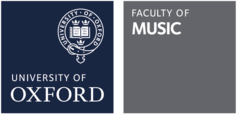Professor Karl Kügle
Following studies of piano performance (Hochschule für Musik Munich, Hochschule für Musik Würzburg, The Juilliard School) and historical musicology (Ludwig Maximilian University Munich, New York University), Karl Kügle has held posts at the University of Maryland, College Park (USA), the Universities of Leuven (Belgium) and Mainz (Germany), The University of Hong Kong, and Utrecht University (Netherlands) where he served Professor in the History of Music before 1800 from 2004 to 2023 and is now Professor emeritus.
Karl Kügle held visiting professorships at the Universities of Chicago (2002), Melbourne (2003), Cambridge (2013), and Heidelberg (2022-23). He was Christensen Visiting Fellow at St Catherine’s College, University of Oxford (Trinity term 2014), a Senior Fellow of the Netherlands Institute for Advanced Study (NIAS, 2014-2015), a Senior Research Fellow of the Leibniz Institute for European History, Mainz (2019) and a Visiting Scholar at the Max Planck Institute for the History of Science in Berlin (2019), and served as Honorary Professor at the University of Hong Kong (2004-2010). He was Head of the Department of Media and Culture Studies at Utrecht University (2011-2013), and President of the Royal Society for Music History of The Netherlands (KVNM), from 2009 to 2014. He was elected Member of the Academia Europaea in 2012.
From 2016 to 2022, he led the ERC Advanced Grant-funded MALMECC project at Oxford. From 2016 to 2019, he was also project leader of the Sound Memories project, a HERA-funded consortium of research teams in the Czech Republic, Germany, Switzerland, The Netherlands, Poland, and the UK jointly investigating the role of music of the past in late medieval and early modern Europe. He currently serves as Director of Research in the Faculty of Music, and as Keeper of the Silver at Wadham College. In addition, he holds a visiting appointment in the Faculty of Engineering at KU Leuven where he serves as Principal Investigator of the VALSOUNDS project.
-
"Clio’s Stepchildren: Anne of Cyprus, Louis of Savoy, and the Politics of Historiography." European History Quarterly (accepted for publication, in press)
-
"The ‘Long Luxembourg Century’ (1310-1437): Courtly Networks, Cultural Politics, Dynastic Legacy" (with Ingrid Ciulisová, Václav Zůrek). The Long Luxembourg Century (1310-1437): Courtly Networks and Cultural Politics in Late Medieval Europe. Ed. by Karl Kügle, Ingrid Ciulisová and Václav Zůrek. Woodbridge, Suffolk: Boydell & Brewer (in press, expected 2023, OA)
-
"The Absent Present: Luxembourg Courts, Their Cultures, and Music Histor(iograph)y". The Long Luxembourg Century (1310-1437): Courtly Networks and Cultural Politics in Late Medieval Europe. Ed. by Karl Kügle, Ingrid Ciulisová and Václav Zůrek. Woodbridge, Suffolk: Boydell & Brewer (in press, expected 2023, OA)
-
"Musica – sonus – vox – cantus: Klangvorstellungen des Mittelalters, mittelalterliches Hören und der ‘sonic turn‘". Klangräume des Mittelalters. Ed. by Nikolas Jaspert and Harald Müller. Vorträge und Forschungen XCIV, herausgegeben vom Konstanzer Arbeitskreis für mittelalterliche Geschichte. Ostfildern: Jan Thorbecke Verlag, 29-52 (in press, expected 2023, OA 2024)
- “The Aesthetics of Fragments: Reading Pastedowns in Context or, Late Medieval Bookbinders, Readers, and their Choices”. Disiecta Membra Musicae: Studies in Musical Fragmentology. Ed. by Giovanni Varelli. Berlin and New York: De Gruyter, 2020, 207-39 (OA)
- Karl Kügle (ed.). Sounding the Past: Music as History and Memory. Épitome musical. Turnhout: Brepols, 2020. 312 pp. (OA, https://www.brepolsonline.net/doi/epdf/10.1484/M.EM-EB.5.120601)
- Manuscript Ivrea, Biblioteca Capitolare 115: Introductory Study and Facsimile. Ars Nova: Nuova Serie 5. Lucca: Lim (Libreria Musicale Italiana), 2019, xix and 70 pp. + 134 photographic colour plates (OA, https://www.lim.it/en/facsimiles/5674-ivrea-9788870969887.html#/1-tipo_prodotto-pdf_lim)
- “Vitry in the Rhineland: A Provisional Report.” Early Music 46:2018, 393–402 (OA, https://doi.org/10.1093/em/cay050)
- “Liturgical Polyphony after 1300”. Cambridge History of Medieval Music. Ed. by Mark E. Everist and Thomas Forrest Kelly. Cambridge: Cambridge University Press, 2018, 881-906.
- “Ic hadde een lief vercoren…: Muzikale erotiek in de Gruuthuseliederen.” Het Gruuthusehandschrift: Literatuur, muziek, devotie rond 1400. Ed. by Frank Willaert, Jos Koldeweij and Johan Oosterman. Ghent: Koninklijke Academie voor Nederlandse Taal- en Letterkunde, 2015, 111-26.
- “Conceptualizing and Experiencing Music (ca. 500–1500)”. Medieval Culture – A Handbook: Fundamental Aspects and Conditions of the European Middle Ages. by Albrecht Classen. Berlin and New York: De Gruyter, 2015, 1184-1204.
- “Textual Culture Shock, or: The Making and Remaking of (Early) Music ‘Philology’.” Early Music Editing: Principles, Historiography, Future Directions. Ed. by Theodor Dumitrescu, Karl Kügle, and Marnix van Berchum. Épitome musical. Turnhout: Brepols, 2013, 9-19.
- “Studien für Klavier: Variationen über ein Thema von Niccolò Paganini a-moll, Op. 35.” Johannes Brahms: Interpretationen seiner Werke. Ed. by Claus Bockmaier and Siegfried Mauser. 2 vols. Laaber: Laaber-Verlag, 2013, 233-41.
- “Glorious Sounds for a Holy Warrior: New Light on Codex Turin J.II.9.” Journal of the American Musicological Society 65:2012, 637-90.
- Borderline Areas in Fourteenth and Fifteenth-Century Music/ Grenzbereiche in der Musik des 14. und 15. Jahrhunderts. Ed. With L. Welker. Musicological Studies and Documents 55. Münster and Middleton, Wisconsin: American Institute of Musicology, 2009. xii +253 pp.
- “Two Abbots and a Rotulus: New Light on Brussels 19606.” Quomodo cantabimus canticum? Studies in Honor of Edward H. Roesner. Ed. by David Butler Cannata, Gabriela Ilnitchi Currie, Rena Charnin Mueller and John Louis Nádas. Miscellanea 7. Middleton, Wisconsin: American Institute of Musicology, 2008, 145-85.
His main research interest is the history of European music cultures of the late medieval and early modern period (c. 1200-1600), with a particular focus on transdisciplinary explorations of late medieval and early modern courts and their soundscapes; the history of music history and musicology from 800 to the present; the history of hearing with a focus on pre-modern acoustemologies and historical sound studies; and the study of music manuscripts and fragments in their many contrasting manifestations.




